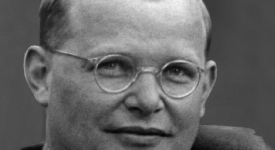With the exception of shades of atheism, there are basically 3 contending options for peoples of the darker hue when it it comes to spiritual cleavages among peoples of the darker hue in the United States. Although there are a handful of adherents of say Judaism; they are mostly few. Unfortunately, these individuals continue to slug it out with the realities of exclusion coming from the dominants in that religion.
Back in Africa, Christianity is a stronghold, having displaced, re-colored (sometimes, it is outright de-coloring actually), and defragmented much of what we would call African Traditional Religiosity (with a connotative plurality). The religion of Christianity, with all the negative attributes which has been attached to, or used to describe its historical actors–performers whose social, spiritual, and cultural replaying of the post-Jesus phenomenon– is nothing more than personalized reconfiguration of Jesus’ works, NOT HIS WORDS, for the pursuit of the mundane career of power. Especially in the limelight in connection with this accusation is the social psychology of the prosperity gospel saga. There is no other aspect of the Christian religion, in Nigeria for instance, which is in the perpetual crucible of the media than the morality of PROSPERITY GOSPEL.
Justified as many of these criticisms might initially appear, without separately considering or critically understanding what components we deploy in describing the religion in relation to the entire portraiture called Christianity, we might actually be calling for the throwing away of the baby with the birth water, something which in some cultures and contexts would be the norm.
However in the case of Africa, a closely-paid attention would reveal that from indigenous (here different than indigenized) perspectives, the pursuit of prosperity makes a whole lot of meaning. Africans and others who worship the Orishas claim to be in alignment with their makers as well as having a date with destiny. On the other hand Muslims, that is worshipers of Allah, Islam’s supreme deity, have similar ways of understanding their relations to the supernatural.
Among black communities in the United States, there is a revival of Orisha worship or what we know as African Traditional Religion. While the religion might be said to be taking quick flights from the contemporary plains of African spiritual marketplace, African Americans, whose churches are mostly witnessing rapid successions in closures as a result of a number of reasons (to be discussed in another post), are falling back on the memory of ancient black religion. Black American priests are beginning to re-identify with the traditional religions of Africa, especially in the secret practices, including Voodooism, of black religion. By these, economic tiers are established, while political and social negotiations are forged by new categories of authorial which merges Christian theology and intellectualism with self-reinventive African religion. Some of these priests make pilgrimages to Africa where they are properly initiated into the local versions of the religion, which is considered more authentic.
[1] Intended to define Christian priests who simultaneously practice African spirituality
The practice of African religions outside of Africa carries more than spiritual ritual. These practices have historically represented the reenactment of memory and psychological rituals, to allay existential threats.
(بسم الله الرحمن الرحيم), pronounced ,bismi-llāhi r-raḥmāni r-raḥīm, a worshipful mode of humble acceptance of the supreme awesomeness of the the divine, is the observation that “In the name of God, the Most Gracious, the Most Merciful,” the devotee reposes their absolute truth in the graciousness and unsurpassed mercy of Allah. Thus, not only does the believer think about this being in completely absolute terms, they also put finis to their entire pursuit by not seeking any help that might be interpreted as being above Allah. Consequently, prosperity for the Muslim comes at the pleasure of the divine giver, the creator. Yet, you hardly hear of criticisms of prosperity “gospel” in Islam. Why do?
One of the reasons Christianity might be in the radar is due to a tendency for the faith to be used as tool of mass domination. Wait, domination? Yes, but domination broadly understood, not in simple colonial or colonizing terms.
Today, Christianity and Islam both enjoy privileged statuses in our lives because they have historically been searing instruments in the shaping, but often in the annihilation entire cultures and populations. And it had always been self-gratifying to declare the triumphs of the faith by the hands of mortals in the name of the lord.
This is just one aspect. In declaration of the inherited domination of the faith, other religious adherents, those whose views of the supernatural pose elements of ideological “threats” to the hegemony of contemporary some evangelicized Christian, and in expression of the historic hatred between various religious bodies, traditional religious practices are denoted as evil.
Note, this outward tendency to catalogue other people’s faiths as evil might have verified justification. Take an example of slavery-enhancing Christian missions. Many of the people who openly condemn the practice do so only out of convenience of profit., not because they, as individuals, have ANY convictions that the practice of slavery itself is wrong.
It is often more pragmatic for persons to not stick their heads out and cry the cry for justice, or even speak up and tell basic truth–not necessarily religiously informed. Point of fact, most individuals would rather cower, hide in their coops, and “keep their positions, than be seen in the radar as challenging hegemony. As a matter of intellectual discourse, it is worrisome to even observe that some of these individuals could also happen to the same players who go to the media bearing placards and blasting off megaphones asking for hyped “JUSTICE” which they, in their little corners, do not have the audacity put to practice. For some reason, Jesus, in his rather polite fashion, calls such people HYPOCRITES.
You are right to challenge any Orisha, Jesus or Allah when their lifestyles do not correspond to the message they preach.
Now, before we start talking about categories of Orishas here, let us take a break and enjoy ourselves for a visual season.







